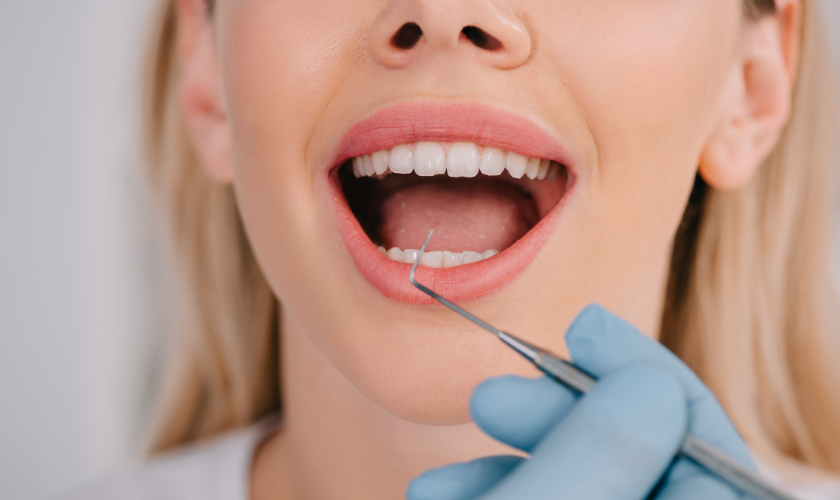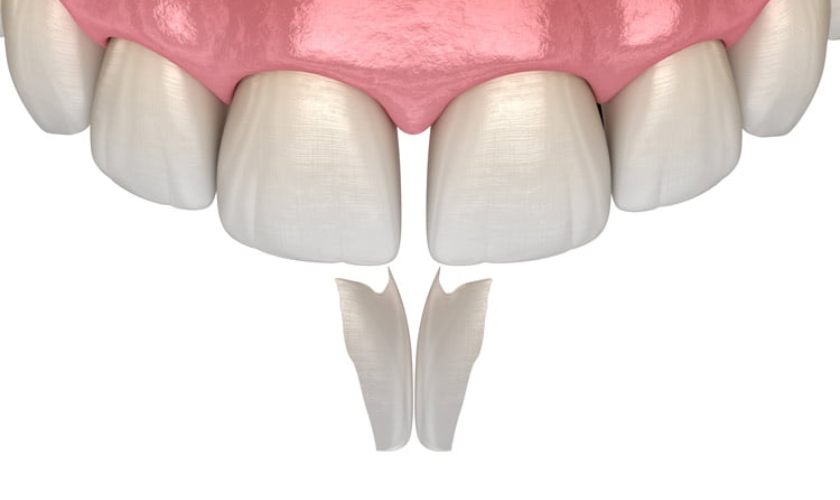Chips Happen: Exploring Dental Bonding as a Quick and Easy Solution

Chipping a tooth can be a distressing experience, especially if it impacts your smile. Whether it’s from a fall, biting down on something hard, or an accident, chipped teeth are more common than you might think. Thankfully, there is a swift and effective remedy available: dental bonding. This procedure is a fantastic option for chipped tooth repair, offering a solution that is both quick and aesthetically pleasing.
What is Dental Bonding?
Dental bonding is a restorative dentistry procedure that uses a tooth-colored resin material to repair chipped, cracked, or broken teeth. The resin is sculpted and hardened to match the shape and color of your surrounding teeth, creating a seamless repair.
Why Choose Dental Bonding for a Chipped Tooth?
There are several reasons why dental bonding might be the perfect solution for your chipped tooth:

- Quick and Easy Procedure: Dental bonding can often be completed in just one visit to your dentist. The dentist will roughen the surface of your tooth, apply an adhesive resin, and then sculpt the tooth-colored composite material to match your tooth. Once the desired shape is achieved, a curing light hardens the resin, leaving you with a repaired tooth.
- Minimal Tooth Removal: Unlike some other tooth repair methods, dental bonding typically requires minimal removal of your natural tooth enamel. This is because the bonding material adheres directly to the tooth surface.
- Natural-Looking Results: Dental bonding resin is available in a wide range of shades to perfectly match the color of your surrounding teeth. When bonded properly, the repair should be virtually undetectable.
- Cost-Effective: Compared to other tooth repair options like crowns or veneers, dental bonding is a more cost-effective solution for minor chips and cracks.
Is Dental Bonding Right for You?
Dental bonding is a versatile procedure that can address a variety of tooth imperfections. However, it may only be suitable for some situations. Here are some factors to consider:
- Severity of the Chip: Dental bonding is ideal for repairing small chips and cracks. If the chip is large or extends deep into the tooth, a different restoration method, such as a crown, might be necessary.
- Location of the Chip: Dental bonding works best for teeth that aren’t under significant pressure when you bite or chew. Because the resin material may not be as durable as a crown, there might be better choices for teeth in the back of your mouth than bonding.
- Desired Outcome: If you’re looking for a long-term solution or require additional strength for a chipped tooth, you should discuss alternative options with your dentist.
Caring for Bonded Teeth
While dental bonding is a durable and resilient solution, it is not invincible. Taking proper care of bonded teeth can help ensure they last for many years. Here are some tips to maintain your bonded teeth:

- Good Oral Hygiene: Brush and floss your teeth regularly to prevent plaque buildup and decay.
- Avoid Hard Foods: Refrain from biting down on hard objects or foods like ice, hard candy, or pens, as these can chip the bonding material.
- Regular Dental Visits: Keep up with routine dental check-ups to monitor the condition of your bonded teeth and address any issues promptly.
- Limit Stain-Causing Foods and Beverages: Bonding resin can stain over time, so try to reduce the consumption of coffee, tea, red wine, and tobacco.
Comparing Dental Bonding with Other Options
While dental bonding is an excellent option for many, it’s helpful to understand how it compares with other dental treatments:
- Veneers: Veneers are thin shells of porcelain or composite resin that cover the front surface of teeth. They are more durable and stain-resistant than bonding but also more expensive and require the removal of some enamel.
- Crowns: Crowns cover the entire tooth and are used for more extensive damage. They offer great protection and durability but are more invasive and costly than bonding.
- Fillings: Composite fillings can also repair chipped teeth, especially when the damage includes cavities. They provide a functional and aesthetic solution but may not be as cosmetic-focused as bonding.
Addressing Common Concerns
Many patients worry about the longevity and appearance of dental bonding. While the material used in bonding is durable, it can wear down or stain over time. However, with proper care and regular dental visits, bonded teeth can last between 3 to 10 years. Additionally, if the bonding material does become damaged or discolored, it can often be repaired or replaced relatively easily.
Patients also sometimes express concerns about the procedure’s discomfort. Dental bonding is typically painless, as it usually doesn’t require anesthesia unless it’s being used to fill a decayed tooth. The process is quick, and patients can resume their normal activities immediately afterward.
Enhancing Your Smile with Dental Bonding
Dental bonding can significantly enhance your smile, providing a natural and pleasing appearance. The ability to repair minor imperfections swiftly and effectively makes it a popular choice among dental patients. With the expertise of a skilled dentist, the results can be truly transformative.
By addressing chipped teeth and other minor cosmetic issues, dental bonding can restore confidence and improve overall dental health. If you have a chipped tooth or other minor dental concerns, consulting with a restorative dentist can help determine if bonding is the right solution for you.
Getting Your Smile Back on Track
Chipped teeth don’t have to spell disaster for your smile. With dental bonding, you can achieve a quick, effective, and aesthetically pleasing repair. If you’re in the area, consulting a restorative dentist in Katy, TX, can be the first step towards reclaiming your confident smile. Dental bonding offers a fast, minimally invasive, and cost-effective solution to help you look and feel your best.
By understanding the benefits, caring for your bonded teeth properly, and exploring your options, you can make an informed decision that enhances both your smile and your dental health. So, if a chipped tooth has been bothering you, remember that a quick and easy solution is just a dental visit away.




